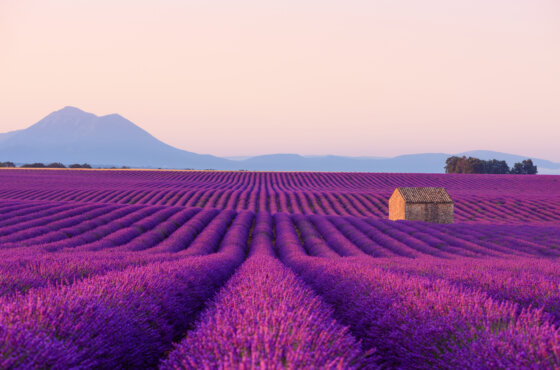Lamedovnik Avri
There are on the earth - and there have always been - thirty-six righteous, whose purpose is to justify the world before Gd. These are lammadovniki ... They themselves are unaware of that, they are secret pillars supporting our world. Without their intercession, Gd would destroy the human race.
They are our saviors and they themselves do not know.
Jorge Luis Borges
In September 1993, the Israeli government signed a treaty in the Norwegian capital with a terrorist group called the Palestine Liberation Organization (PLO). As part of its obligations, the state ceased the creation of new settlements in areas liberated during the Six Day War, for which Israeli sovereignty was not extended.
Without state participation — the creation of the necessary infrastructures, the laying of roads and the routing of communications — the construction of new full-fledged settlements has become impossible. Development and settlement of the central regions of the country - Judea and Samaria - has stopped. And the vast lands within these territories, which were the property of the state, were under the threat of predatory seizure by the Palestinian Arabs, directed by their political leaders and their allies from radical leftist circles.
It was then that a retired lieutenant colonel Avri Ran, who grew up in a kibbutz and shortly before returning to the Jewish tradition with his family, built his tiny farm on a hill opposite the Itamar settlement near Schem. After moving there with his family, he actually founded the first outpost (in Hebrew - “Maahaz”), becoming the creator of this effective means of fighting for the preservation of the Jewish presence in areas whose ownership will determine the future of the country.
The creation of outposts that does not require significant expenditures on the preparatory infrastructure turned out to be real without state assistance and often even against the will of the authorities.
The agreement with the PLO retained for the Israeli side the right to organize small agricultural farms, which became the formal legal justification for the deployment of outposts by Avri's followers. In fact, the outposts continued the old settlement concept “Wall and Tower”, which the Zionist movement developed in the first half of the 20th century, on the eve of the declaration of independence as a response to the attempts of the occupying British authorities to thwart the creation of a Jewish state.
The similarity of the projects was manifested even in the presence of legal loopholes. Indeed, at one time, the organization of settlements according to the “Wall and Tower” type was based on the hazy Turkish law on the impossibility of demolishing a building that already has a roof. Therefore, the “Walls and Towers” settlements were built, as a rule, in one night, during which the notorious roof was erected ... Thus, despite the British’s desire to deprive the Jewish colony of integrity, the contours of the future country were laid.
Avri Rana's tiny farm, established in 1995, began to grow. Towards her from Itamar pulled out similar farms, gradually eroding the border of the village, outlined by the Oslo agreement.
Meanwhile, Avri Ran, having gathered his numerous family — ten children, some of whom have already got their own families, grandchildren, workers — moved into a simple farm and living creatures — chickens, goats and sheep — farther from Itamar, along the slopes of the mountain range, having established a new outpost.
And again, after some time, the farmers coming to him from Itamar actually tied together a new outpost and a village. Again, Avri Ran rose with his family and moved along the ridge.
Carried away by the illusions of the dialogue with the PLO, the authorities tried in every way to slow down and disrupt the advancement of the family, then confiscating property, then declaring the desert territories of the hilltops a closed military zone. And they retreated over and over again, faced with Avri's incredible stubbornness, hardness and perseverance.
Rana's success inspired hundreds of other people. Across Judea and Samaria, and even in the Gaza Strip, around the already existing settlements, deprived of the opportunity to develop as a result of agreements with the PLO, outposts began to appear one after another.
Avri Ran has become a symbol of the Jews' inflexible desire to live on their land. Unfamiliar and completely unfamiliar supporters of the Jewish settlement of Judea and Samaria, from social activists and businessmen to government officials and politicians, sought to help and support, than they could, the courageous pioneer.
Personal qualities of Avri Rana attracted many teenagers to him. Gradually, a movement of young settlers formed around Rana, creating about a hundred and fifty new outposts throughout Judea and Samaria, calling themselves the “Youth of the Hills” and seeing their informal leader in it.
Among adolescents, there were those whom they called difficult. Avri had kept them on his farm more than once, often taking bribes from the police. Education in the framework of the Jewish tradition, physical work in the fresh air and the amazing charisma of the educator helped many of them to get rid of drug addiction, break out of the criminal environment and return to normal society.
But if many people saw in Avri Rana a hero, the embodiment of the spirit of Zionism and the connection of the Jewish people with their land, then for leftist radical circles he became one of the most hated enemies.
It was his success in the practical development of the country, in real affairs, and not in noisy demonstrations and empty statements, unwillingness to surrender and give up before enemy pressure, made him a man who was hit by an unprecedented avalanche of provocations, lies and slander.
The task of left-wing extremists was to discredit Rana or even to expel him from the area. Like supporters, it was obvious to his opponents that the success of the settlement project is largely based on Avri's dedication and courage. And that in the absence of Avri, the development of farms will slow down or stop altogether.
In 2005, Ran was accused of attacking one of the provocateurs who had reached his farm. It took almost half a year to fight for an honest name, until a trial took place that fully justified the farmer. Moreover, the judges criticized both the Judea and Samaria district police, as well as its investigation methods.
In 1998, four and a half kilometers southeast of Itamar, on the top of a large hill Avri Ran founded the farm "Gvaot Olam", in fact linking the Jewish villages of Samaria and the Jordan Valley into a single complex, where he finally settled with his entire huge family.
Gwaot Olam has become the largest Israeli farm, where they are engaged in ecological agriculture, refusing to use synthetic fertilizers, pesticides, feed additives and other artificial stimulants.
All the work on the farm is carried out by the residents themselves, without attracting either Arab mercenaries or foreigners. On the hen, the hens freely walk around the huge yard and lay eggs in spacious chicken coops, not in tiny cages, as is customary in many modern farms to increase efficiency, but to the detriment of the birds themselves. Sheep and goats living on the farm provide raw materials for a cheese factory that produces cottage cheese, cheeses and yoghurts. Ecological grain is also grown here, grinding flour and baking bread.
During the construction of a farm on the top of a hill, the ruins of a winery from the Second Temple era and a huge artificial cave that served as a reservoir were found. In skillful hands, the ancient economy was revived, adding tart wine to the assortment of “Gvaot Olam”, which is stored in a cleared dungeon.
In the center of the farm Avri put an octagonal wooden structure, which became the kitchen and dining room for all residents of the village. Alongside his sons, he built a wooden synagogue with an ark for the Torah scroll, skillfully made of local stones by a talented Israeli artist and sculptor Asaf Kidron, part-time resident of the village and one of the sons-in-law Avri Rana.
Asaf gave the whole farm a special charm, creating an amazing park of stones and trees on the top of the hill. In the center of the park, he erected a monument to the legendary conqueror of the Land of Israel - Yeshua Bin Nun (Joshua).
The monument is made of stones collected in those places where, according to tradition, Yeshua performed his feats. In the center of the monument there is a mosaic with the inscription: “Yeshua Bin Nun, be strong and cheer up!” Sixty olive trees planted around symbolize “Shishim ribo” - one of the sacred numbers of the Jewish tradition, meaning six hundred thousand. By tradition, just as many people came out of Egyptian slavery after Moshe (Moses).
The seven circles that form the park symbolize another important number, corresponding to the seven rounds of the Jericho walls, seven Kohanim, blowing seven shofars, and the seventh day, when the walls of the enemy city fell ...
Wife Avri - strict Sharon - the mistress of the hill. Only she knows what it is to keep a huge farm, including hundreds of livestock and thousands of chickens.
The natural majesty of Avri and Sharon revives the images of not even the pioneering heroes of the early Zionist era, but the biblical images of the founding fathers of the nation, who at the dawn of time came to this land, promised by the forever fearsome Gd of their fathers for their numerous descendants.
Their connection with this land is clear and inseparable, their right is indisputable and unshakable. Neither cruel enemies, insidious provocateurs, nor fearful politicians can shake their confidence and their truth.
Here, on the hill of Gvaot Olam, four and a half kilometers southeast of Itamar, in Mihmetat, a Samaritan valley, lives one of the foundations that feed the soul and force-filled cruelty people who are not afraid to argue with eternity or with Creator.











